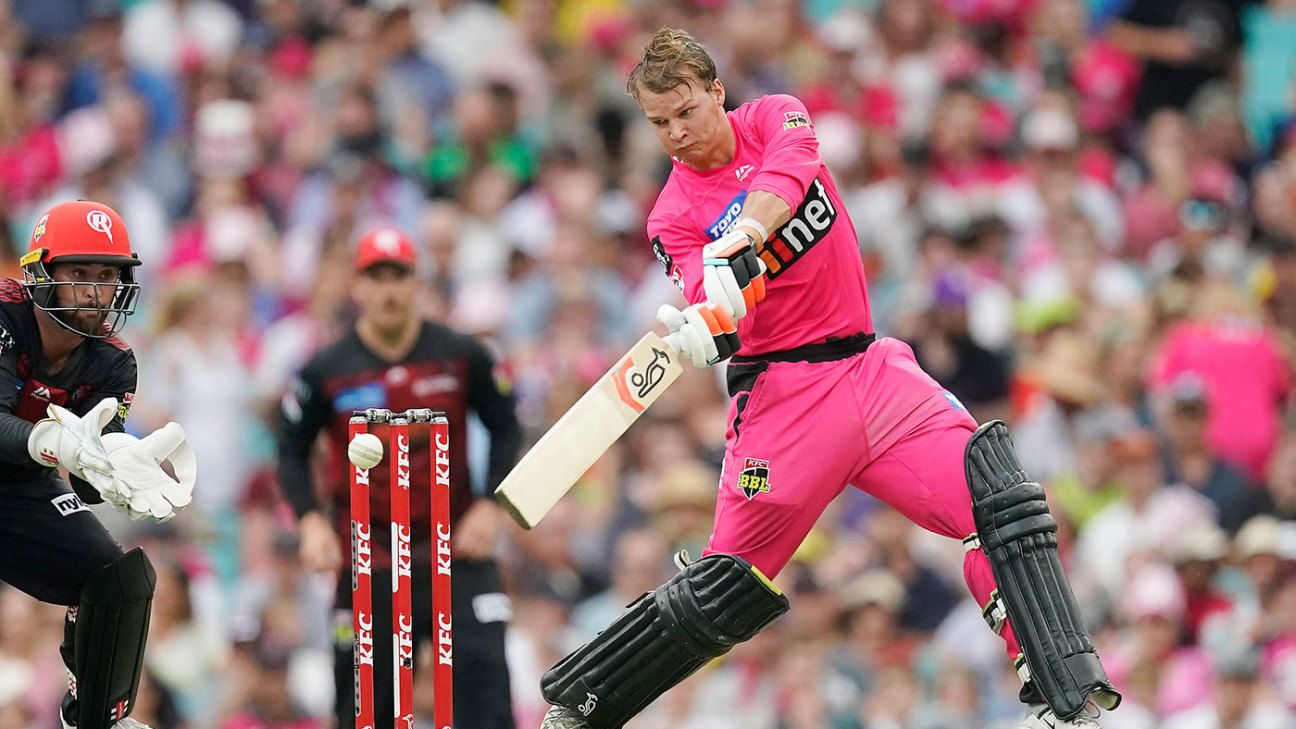
Fears that advertisers will soon be beating down doors at Seven and Foxtel, requesting discounts in line with any reduction in rights from Cricket Australia, have helped send a very public broadcast dispute into a more private setting - at least for now.
CA's interim chief executive Nick Hockley and the New South Wales-based board director Richard Freudenstein met with Seven's chief executive James Warburton in Sydney on Thursday, and Hockley with Foxtel's chief executive Patrick Delaney on Friday, in an effort to find a resolution after weeks of public mud being slung at the governing body in pursuit of a rights discount.
This pertains particularly to the BBL, which virtually all parties other than CA are adamant needs to be reduced in size from the 14-game-per-team structure of the past two seasons, regardless of the effects that the Covid-19 pandemic will have on the looming season.
Plenty of other issues have been raised, from a perceived "lack of quality" in terms of players to the flipping of the international season to have India playing white-ball games - behind Foxtel's paywall - before Seven air a Test match.
ALSO READ: Cricket Australia v Channel Seven: Gold Coast glow forgotten in broadcast battle
While CA and the broadcasters remain at odds over whether or not their shares of a A$1.18 billion, six-year rights deal should be reduced given that very little content has been cut from the schedule - none at all as yet in Seven's case - there is at least now consensus that the public sparring needs to come to an end.
All parties share concern that the already significant damage to cricket will allow advertisers to push the broadcasters themselves for further discount to rates for airing commercials during the summer, or in Foxtel's case scare off potential subscribers.
More dangerous still is the prospect of a cascade effect from Seven and Foxtel's decision not to pay their full contracted instalments (A$33 million from Foxtel, A$25 million from Seven) to CA on Tuesday, whereby sponsors and advertisers choose to take similarly provocative action.
Seven, a A$1.3 billion annual revenue business that is 41% owned by the multibillionaire Seven West Media chairman Kerry Stokes, has been eager to propagate the fanciful idea that full payment of its A$82 million annual rights fee (A$75 million in cash, A$7 million in free advertising with the network) to CA had the potential to wreck the company. In late August, Seven poached rights to high-rating talent show The Voice from its rival network Nine.
The noise of the dispute, largely driven by Warburton's incendiary words but widely broadcast by News Corp, owner of Foxtel, has run in the face of green shoots in terms of advertising spend across the media industry, which bottomed out in June and has been slowly regathering itself since.
CA and Seven now have until September 25 before the network's request for a dispute resolution mechanism to be activated, in which the value of the rights are independently assessed. This clause is part of a long-form agreement between the governing body and the network that was only completed quite recently, underlining the instability that has existed in the A$450 million relationship between Seven and CA almost from the beginning of their deal in April 2018.
While Foxtel have maintained a more dignified front in their own negotiations with CA, a highly concentrated media environment has helped contribute to pressure on the governing body that aids the pay TV provider in its request for a rights reduction and/or a greater level of exclusivity should Seven follow through on its threats to walk away from the CA deal.
News Corp's global chief executive, Robert Thompson, said that there was benefit for Foxtel in negotiating cheaper and more fit-for-purpose sports rights deals in the current environment, as sports battle with the enormous growth of their cost bases.
"There needed to be a reset in sports rights cost. In Australia there has been a reset and that reset is still in motion and there is no doubt as to the benefit of Foxtel," Thomson told an investment conference. "There's a realism in Australia about sports rights. The sports themselves have generally become conscious of the value of media partnerships and are aware of the danger of not having those partnerships. It's an existential moment for some of the sports given their own cost base.
"These things are not just about the quantity of matches, they are about the quality of the experience for our customers. We all know which teams are the big drawers and the importance of exclusivity. And that for us is a big factor. Not just how much we spend, but the quality of the relationship we have with the sport and how the sport understands our needs."
Seven is due to broadcast the opening international matches of the season, a limited -overs series between the Australian and New Zealand women's teams in Brisbane, starting with three T20Is on September 26, 27 and 30, before an ODI series on October 3, 5 and 7. The WBBL is scheduled to commence on October 25 and be played entirely in Sydney.















 Phone: (800) 737. 6040
Phone: (800) 737. 6040 Fax: (800) 825 5558
Fax: (800) 825 5558 Website:
Website:  Email:
Email: 






